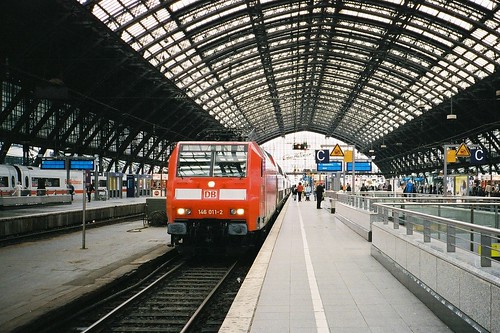
The picture above shows what the new fleet of trains for Britain's inter city routes should have looked like, not what has actually been ordered. The contract for the new fleet of inter city trains has now been awarded to Hitachi. 1400 new carriages will be purchased at a cost of £7.5 billion, which works out at £5 million per vehicle. The best thing that can be said about this is that the government has not given in to the "British jobs" argument.
But given the present mix of electrified and non-electrified lines, and no firm plans for electrification, this is not the right train for the job just now.
The electric fleet on the East Coast Main Line was introduced in 1992 and there is no urgency about replacing it. The refurbished HSTs are also good for another 15 years. The first priority should have been to get on with electrification to Bristol and Cardiff, and probably Aberdeen. Electrification to Exeter would also be desirable, but there are three possible routes to choose from - via Bristol, or Westbury or Salisbury, and of these, the latter could make more sense.
The short-distance routes are very much in the nature of commuter lines and a run-on order of something like the trains running on the Portsmouth and Bournemouth lines would have done perfectly well when the electrification was done. For routes which are unlikely ever to be electrified - beyond Exeter, for example - ordinary locomotive-hauled stock should have been ordered, with a change of traction where the electrification came to an end. The use of locomotives with hauled stock would have given a useful measure of flexibility to deal with changing circumstances, as well as enabling the continuing use of the mark 3 fleet which can apparently be kept in service indefinitely. Unfortunately, whilst flexibility is appreciated by those in the front line of railway operation, its benefits are not acknowledged by those who make the planning decisions.
Value for money?
At a cost of more than £5 million per vehicle, this order does not look like good value for money. Vehicles such as the Turbostar are presently about £1.2 million, and the price of a hauled vehicle should be of the same order. Standard European electric locomotives such as the TRAXX (photograph above) are available, at present costing about £3 million and could presumably have been adapted for British use. At a time when Britain's railways are suffering from a desperate shortage of capacity, surely it would have been better to spend the £7.5 billion on as many vehicles as could be bought for the money?
Kommentarer